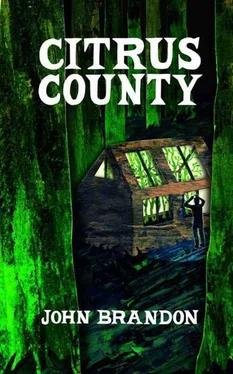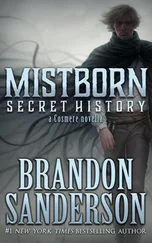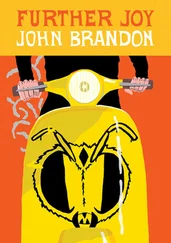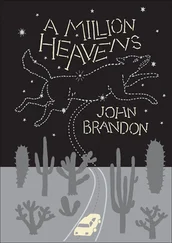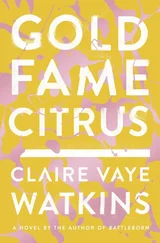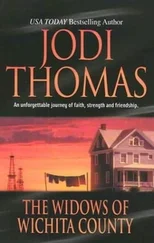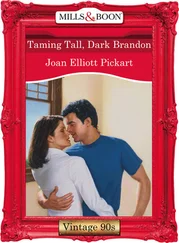“Those librarians get paid the same as teachers do,” Mr. Hibma said. “Tell them to quit fiddling with paper clips and show you the genealogy section. And if you have to use the Internet for this, don’t let me know about it.”
Mr. Hibma went to his podium and began lecturing about assassination. He stayed broadly in the area of geography by informing the kids where certain assassinations had taken place, how the act of assassination had impacted different regions of the world.
“Assassination,” he said, “helps everyone know what side they’re on. It cuts through the shenanigans of voting and impeaching.”
Mr. Hibma let this statement sink in, then touched on general points about revolution. He wanted the kids to understand that in the United States capitalism had become so monstrous that even the idea of revolution could be marketed and sold. Protest against a corporation could be sold by that corporation. Artists and moralists could no longer make their own revolutions; they had to depend on the poor. The problem was that the poor weren’t poor. The poor had frozen pizza and cable TV and cigarettes. Hell, the poor had real pizza and DVDs and weed.
Mr. Hibma could drone for twenty minutes without thinking about what he was saying. There was nothing to do but observe the kids. It was like watching monkeys at the zoo — the scratching, the gnawing, the use of simple tools. One of the kiss-ass girls stared at Vince, the gum kid. Vince stared over at Shelby. Shelby stared at the back of Toby. Toby stared down at the pages of a book about, it seemed, track and field, reading about, it appeared, pole vault.
“Pole vault?” Mr. Hibma asked, interrupting himself.
Toby looked up.
“I didn’t know they did pole vault in middle school.”
“If you want to do it they have to let you. Those two huge girls that failed can throw the shot and the discus further than any of the guys, and I can’t run fast without someone chasing me, so I chose pole vault.”
“They can throw farther ,” Mr. Hibma said.
“It’s not even close.”
“No, I mean you said further , but that’s for intangible distances. For measurable distances it’s farther .”
“Okay.”
“Would you like to read that book later or would you like detention?”
“I have to read this now,” Toby said.
“We could schedule your detentions in advance. We could get a calendar with humorous pictures of puppies and fill it in from now till the end of the year.”
Toby didn’t answer.
“Where was I?” said Mr. Hibma. “I was about to tell you that the most rebellious thing a youngster can do is sit outdoors and listen to the birds. Sitting indoors in detention is about the least.”
Mr. Hibma, without warning, walked out of the classroom. He did this now and again to shake the kids up, to force them to deal with freedom. Sometimes he returned in thirty seconds and sometimes he stayed gone the rest of the period.
He strolled to the end of the hall, to the big windows. Live oaks. Mockingbirds. A hill, or at least what passed for a hill in Florida. Mr. Hibma watched the groundskeeper for a time, jealous. The guy sat on that grazing tractor, letting his thoughts find him, watching the uncut section of lawn agreeably dwindle. Spread a little mulch. Eat a sandwich.
Mr. Hibma went to the lounge. He chugged someone’s soda. Because it made Mrs. Conner angry, he used the ladies’ restroom. He pissed on the seat and buried the bottle of hand soap at the bottom of the trash. He looked into the mirror and said aloud, “I am twenty-nine years old. I am a middle school teacher. I live in Northwest Central Florida. I inherited money from an old Hungarian man I picked up groceries for. I had a couple lengthy talks with him and sometimes walked his dog.” Mr. Hibma cleared his throat. He looked at himself resolutely. “Sir, you spent one third of an inheritance on whores.”
He came out of the bathroom. The tick of the clock had an echo. In three minutes the bell would ring and the lounge would fill with teachers. They would brag about how they’d dealt with their problem students. They would brag about what they’d said to pushy parents, brag about their students’ test scores. They would brag about their weekends, about their houses and spouses and whatever else was handy to brag about.
When Toby got home from school he found Uncle Neal in the kitchen, shoving jars and small appliances around on the countertop. He went ahead and asked his uncle what was wrong.
“Stupid nail clippers are lost. Somebody ate them or somebody stole them.” Uncle Neal stared at Toby in a way that was meant to convey fraying tolerance. “And we’re out of freaking ketchup,” he said. “You used the last of it.”
It had been a long time since Toby had been scared of his uncle. This was a guy who’d never given Toby a gift, even at Christmas, who used to ground him for speaking too many words in a day, who used to slap him in the back of the head if he had a nightmare and woke Uncle Neal up. It hadn’t taken Toby long to grow numb to his uncle’s harassment, and it hadn’t taken long after that for his uncle to get bored with harassing Toby. He still gave Toby shit, but nothing like before. Somewhere in there Uncle Neal had stopped drinking and had taken up smoking things. The guy was pathetic and Toby had to live under his roof for the foreseeable future. Toby had found that the best way to keep his uncle out of his business was to come around once a day and let him bitch, even if all he had to bitch about were clippers and condiments. As long as Toby came around, Uncle Neal didn’t go looking for him.
After detention the next day, Toby headed for the track-and-field tryouts. A bunch of other kids were going too. This was the kind of thing kids did. Toby walked past the faculty parking lot, the garbage bins. He rounded the trailers. There was Shelby Register, sitting on a bench at the little playground, reading a newspaper. The middle school had once been an elementary school, so it still had this kiddie playground and low water fountains you almost had to get on your knees to drink from.
Toby took a moment to watch Shelby. She wasn’t as transparent as the other kids at Toby’s school. He sort of hated her because everything was easy for her, but somehow she felt like an ally. She had misery in her and she didn’t give it away. She kept it and believed in it. She was like Toby; she was fine with whatever people thought she might be, fine with being underestimated. She was pretty without looking like all the other pretty girls. She wasn’t ashamed of being smart.
A toddler with red hair was on the swing, kicking her feet and tucking them. Toby walked up beside Shelby and for a moment she didn’t notice him. He wasn’t sure why he was stopping, wasn’t sure what he wanted to happen. Shelby had crisp tan shorts on instead of her old army pants. Her legs were ghastly white. She had wisps of hair falling over her ears. Shelby thought she was better than everyone else, and maybe she was right. She wasn’t better than Toby, though, because Toby wasn’t playing the same game.
She lowered her paper. “You can sit if you want.”
Toby’s face was to the sun. The sky was still, empty except for one immovable cloud that looked like a boulder. Toby stepped in front of the bench and lowered himself onto it.
“They’re going to eliminate pennies.” Shelby folded the paper and tucked it under her leg.
“How?” Toby said.
“Just pennies, for now.”
“So no more of those little trays: leave a penny, take a penny.”
“Those will go to museums.”
Toby grunted. He looked at the little girl on the swing.
“That’s my sister,” Shelby said. “We live through there. You can almost see our house.”
Читать дальше
